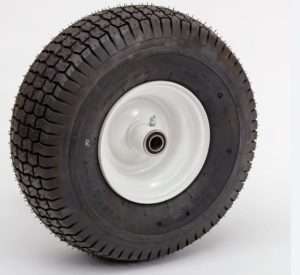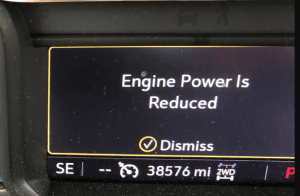How to paint car bumper. “8 Easy Steps to Brighten Up the Look.”
For many car enthusiasts, painting their own bumper is a way to add a personal touch to their vehicle and make it unique. While painting a bumper may seem like a difficult task, it is actually quite simple if you follow the proper steps. In this article, we will show you how to paint a bumper in eight easy steps.
Eight easy steps to paint your car bumper
Step 1:
Before you begin painting your bumper, it is best to properly prepare the surface. Cover the surrounding area with a large plastic tarp to protect it from splatter. Remove all of the existing bumper components such as the fog lights, signal lights, and push bumpers.
If you are repainting your bumper due to damage, remove any broken or cracked pieces and sand down any rough edges with a fine-grit sandpaper.
Step 2:
Priming the Bumper Before you can paint your bumper, you must first coat it with a primer. This will allow the paint to stick to the surface and prevent it from chipping or peeling.
Apply the primer in even strokes using a high-quality brush. Be careful not to get any primer on the painted bumper, as it will prevent the paint from sticking. Allow the primer to dry for at least 24 hours.
Step 3:
Applying Primer Sealant The primer sealant is a layer of clear coat that helps protect and seal your paint job. It also helps to fill in any deep scratches or chips. Use a high-quality brush to apply the primer sealant in even strokes.
If you have an air gun, you can use it to apply the primer sealant, but be careful not to get too close. Once you have covered the bumper with primer sealant, allow it to dry for at least 24 hours.
Step 4:
Applying Paint After your primer and sealant is completely dry, you can start applying your paint. A spray gun is ideal for this. You want to use high-quality paint, as the color you choose will be visible after the job is complete.
If you are using a spray gun, make sure you have enough ventilation to avoid inhaling any fumes. Use a paint gun primer to ensure that your paint sticks well. If you are using a brush, use oil-based paint. You can apply a layer of sealant once your first coat has dried.
Step 5:
Applying Clearcoat When your paint is completely dry, apply a layer of clear coat to get a glossy finish. Use a high-quality clearcoat that will protect the paint you have applied. Apply this by hand or with a paint gun. Allow the clearcoat to dry for at least six hours, then you can apply another coat if desired.
Step 6:
Apply a Top Coat If you want to increase the durability of your paint job, apply a topcoat. This will ensure that your paint lasts longer and protects it against weathering, scratches, and other damage. You can apply this by hand or with a paint gun. This will give your paint a glossy finish.
Step 7:
Apply Wax to Protect the Paint When your paint job is completely dry, you can apply wax to help protect it and keep it looking good. You can apply this by hand, or with a paint gun. This will give your paint a glossy finish.
Step 8:
Let the Paint Dry If you want to create a long-lasting paint job, let it dry for at least 24 hours. If you apply wax before it dries, you can risk getting wax all over your car and ruining your paint job.
How to paint a plastic bumper
Spray painting a plastic bumper is a relatively simple process that can be completed in a few hours. Here are the basic steps:
- sand the surface of the bumper with 400-grit sandpaper to rough it up and help the paint adhere
- wipe down the bumper with a tack cloth to remove any dust or debris
- apply a primer designed for plastic surfaces
- once the primer is dry, apply your top coat of paint using light, even strokes with a foam brush
- apply a clear coat of paint
- let the paint dry for at least 24 hours before using the bumper again
how to paint a primed bumper
- Before you can paint a primed bumper, you must first sand it down to create a smooth surface.
- Once the bumper is sanded, you will need to apply a base coat of paint.
- Finally, you can apply the finish coat of paint to the bumper. Make sure to let each coat dry completely before adding the next one.
How long does it take to paint a bumper?
Most professional auto body shops will usually take about 1-2 days to complete the entire process of painting a car bumper. This includes the time necessary for priming, painting, and drying the bumper.
If you are planning on painting the bumper yourself, it will most likely take you much longer since you will need to account for prep time, painting time, and drying time. Expect the entire project to take anywhere from 3-5 days if you are working on it by yourself.
Conclusion
If you want to give your car a new paint job, it is important that you do it correctly. Otherwise, your new paint will not last as long as it should. If you follow these steps, you will have a beautiful new paint job on your car in no time.
FAQs on How to paint car bumper
Q1. What is the best way to prep a car bumper for painting?
A1. The best way to prepare a car bumper for painting is to use a sanding block with medium grit sandpaper to lightly sand the surface of the bumper. This will remove any dirt, grease, and other debris that could prevent the paint from sticking properly. You should also wipe down the bumper with a clean rag and a degreasing cleaner to remove any remaining dirt or grease.
Q2. What type of paint should I use to paint a car bumper?
A2. Automotive paint is best for painting a car bumper. It is designed to withstand the elements and can provide a durable, long-lasting finish. You should choose a paint that is specifically designed for automotive use.
Q3. How many coats of paint should I apply to my car bumper?
A3. You should apply at least two coats of paint to your car bumper. The first coat should be a base coat, and the second coat should be the top coat. The base coat helps to provide a smooth surface, and the top coat helps to protect the paint from any damage or fading.
Q4. How long should I wait between coats of paint?
A4. You should wait at least 24 hours between coats of paint. This will allow the paint to dry completely and will ensure better adhesion between the coats of paint.
Q5. What is the best way to apply paint to a car bumper?
A5. The best way to apply paint to a car bumper is to use a spray gun. This will provide an even application and will help to avoid any drips or runs in the paint. You should also use a brush to get into any hard-to-reach areas and to apply small details.



